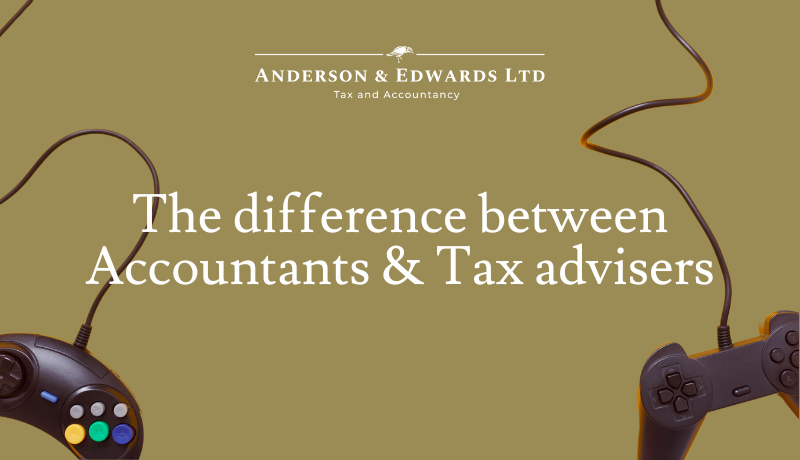
People often think that a tax adviser and accountant are the same, but surprisingly, it's not! The ‘quick’ answer to the question of what the difference is “it depends…” The nuanced answer is more involved, and very much open to interpretation. Here’s what you need to know.
The temptation is to fall back on old stereotypes and say that an accountant will figure out how much profit has been made, and the tax adviser will figure out what is due to HMRC based on this. That may have some truth in it, however, in reality each of the roles can encompass much more, and in an ideal world the roles are intertwined.
Many business owners will initially go to an accountant for help preparing their annual financial statements. This is often necessary because the law requires that companies file information with Companies House so that members of the public can assess the companies they’re dealing with, and various tax returns can be filed with HMRC.
A good accountant will, however, help businesses look into their numbers to identify which of their activities are profitable and which are not. This helps businesses to cut their losses, focus on their winners, and thereby grow to meet market demand.
If the business grows sufficiently, further members of the accountancy profession – auditors – will review their operations and help ensure that there is adequate financial control and that the business’ numbers are reliable. Depending on the size of the business, further members of the accountancy profession – treasury and corporate finance – will help manage the finances on a day to day basis, and help assess if investment decisions are likely to be profitable. Less fortunate businesses may find themselves in financial difficulties, at which point they may need to engage an insolvency practitioner.
Overall, a team of good accountants will help ensure a business maximises its profits.
Beyond this, part of being in business is dealing with the tax system. In terms of ‘reporting’ this means that profit has to be declared to the government periodically on various tax returns depending on the specific tax that happens to be payable; VAT Returns have to be filed quarterly, Income Tax or Corporation Tax returns are filed annually – and if a business is in certain sectors they may have to file Insurance Premium Tax, Aggregates Levy, Landfill Tax, Stamp Duty Land Tax, Capital Gains Tax and various others (not all of these will apply to everyone, sorry if we lost you there).
From the perspective of a business, tax is essentially a cost that has to be managed the same as any other cost. Any business therefore needs to be able to understand what taxes it is liable for so it can make the necessary tax returns and pay liabilities on time.
The wisest businesses take advice to ensure they understand their obligations. And, the earlier they talk to a tax adviser the more likely they can structure their affairs to ensure that the tax burden is managed.
Tax law is complicated and the politicians who inspire it rarely understand the complications created by their policies. A tax adviser – who may also have trained as an accountant or solicitor – has taken time to understand at least part of the tax system so they can interpret how it operates in practice.
Talking to a tax adviser early can, therefore, help structure matters to ensure they acknowledge any concessions that are available, and limit any activities where the commercial benefits of increased trade are counterbalanced by quirks in the tax system.
Somewhat controversially, therefore, I’d venture the answer as follows: - What’s the difference between an accountant and a tax adviser? The accountant is the adviser you contact once you start your business; the specialist tax adviser is the adviser you might consult after your business has made some money… but sometimes, the tax adviser can also be someone you wished you’d contacted before anyone else.
What most businesses really need is a facility where there are both accountants and tax advisers who work together – often with other professionals including solicitors and financial planners – to help their clients maximise profits, grow their personal wealth and then manage the tax burden.
Funnily enough, we have both tax advisers and accountants under our roof. If you aren’t sure which to contact first, give us a shout and we’ll do our best to point you in the right direction. Ring us on 0131 364 4191 or email Enable JavaScript to view protected content..
© 2025 Anderson & Edwards Ltd|Registered in Scotland SC678768|Privacy Policy|Website by Broxden